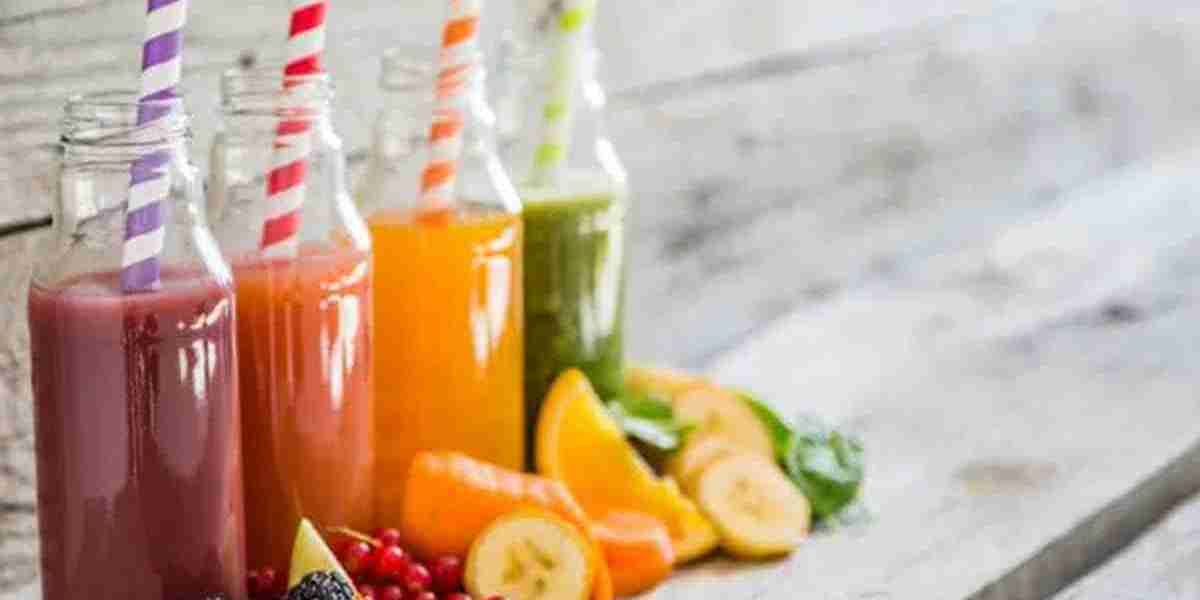The plant-based beverage market is undergoing a dynamic transformation, evolving from a niche offering to a mainstream powerhouse in the global food and beverage industry. Once limited to health-conscious consumers and vegans, plant-based drinks are now widely embraced by flexitarians and mainstream shoppers seeking healthier, eco-friendly, and innovative alternatives. The market is expanding rapidly, fueled by growing demand for functional beverages, sustainability-driven choices, and cutting-edge product innovations. As the industry evolves, both established players and innovative startups are redefining the market landscape.
1. Current Market Landscape: Steady Growth and Expansion
The plant-based beverage market is no longer a passing trend—it’s a full-fledged industry with massive growth potential. According to industry reports:
The global market was valued at approximately $24 billion in 2022 and is projected to surpass $50 billion by 2030, reflecting a strong CAGR of around 10%.
North America and Europe remain the largest markets, but Asia-Pacific is emerging as a high-growth region, driven by rising lactose intolerance rates and increasing disposable incomes.
Categories such as oat, almond, and pea-based beverages are leading the charge, with oat milk, in particular, seeing explosive growth due to its creamy texture and barista-friendly properties.
2. Key Developments Reshaping the Market
The plant-based beverage sector is being propelled by several significant developments, from product innovation to changing consumer behaviors and sustainability-driven practices.
a) New Ingredients and Novel Blends
While almond, soy, and coconut milk were once the mainstay plant-based options, today’s market is witnessing a surge in alternative ingredients and creative blends.
Pea protein beverages: Rich in protein and sustainable to produce, pea-based drinks are gaining popularity, particularly in the fitness and wellness segments.
Barley and hemp beverages: Emerging as new contenders, barley and hemp-based drinks offer high fiber content and a low environmental footprint.
Nut and seed blends: Brands are creating multi-ingredient blends, such as almond-cashew milk or hemp-flax beverages, to enhance taste, texture, and nutritional content.
Hybrid beverages: A new wave of hybrid plant-and-dairy products is emerging, appealing to flexitarians. These beverages combine small amounts of dairy with plant ingredients for a creamier texture while reducing environmental impact.
b) Fortification and Functional Beverages
Consumers are increasingly seeking plant-based beverages that offer more than just dairy alternatives—they want added health benefits. This has sparked the growth of functional plant-based drinks.
Protein-rich formulations: To address the lower protein content of many plant-based milks, brands are fortifying their products with pea, brown rice, or hemp protein, catering to fitness and wellness consumers.
Probiotic-infused drinks: With gut health gaining attention, plant-based beverages containing probiotics and prebiotics are on the rise, offering digestive benefits.
Adaptogenic and wellness-enhanced drinks: Beverages infused with turmeric, ashwagandha, or CBD are gaining traction as consumers seek stress relief and anti-inflammatory benefits.
Immunity-boosting drinks: Fortified with vitamins C, D, and zinc, these beverages are positioned as immune-boosting solutions, particularly in post-pandemic consumer landscapes.
c) Flavor Innovation and Customization
One of the biggest challenges plant-based beverages initially faced was taste and texture. Today, brands are focusing heavily on flavor enhancement and creative customization.
Barista-style plant-based milks: Brands are perfecting the creaminess and frothing capabilities of plant-based milks, making them ideal for lattes and cappuccinos. Oat milk, in particular, has become a favorite in coffee culture.
Indulgent flavors: The market is seeing a wave of dessert-inspired flavors like salted caramel oat milk, chocolate hazelnut almond milk, and vanilla-coconut lattes, catering to indulgence-seeking consumers.
Seasonal and limited-edition flavors: Companies are launching seasonal plant-based drinks (e.g., pumpkin spice oat milk) to create a sense of novelty and urgency, driving repeat purchases.
3. Sustainability and Ethical Sourcing
As consumers become more environmentally conscious, sustainability is becoming a key differentiator in the plant-based beverage market.
Water-efficient production: Oat and hemp milks are gaining favor due to their low water requirements compared to almond milk, which has been criticized for its water-intensive production.
Eco-friendly packaging: Brands are switching to recyclable, biodegradable, and plant-based packaging to reduce plastic waste and appeal to eco-conscious consumers.
Carbon-neutral production: Companies like Oatly are actively promoting their carbon footprint labeling to build transparency and attract sustainability-minded shoppers.
4. Technological Advancements and Food Tech Integration
Advances in food technology are driving new possibilities in the plant-based beverage space.
Fermentation technology: Companies are using precision fermentation to create plant-based dairy analogs with more realistic taste, texture, and nutritional properties.
Enhanced emulsification techniques: Improved emulsification and processing methods are helping brands achieve a creamier, dairy-like mouthfeel, addressing one of the main complaints about early plant-based products.
AI and data-driven innovation: Brands are using artificial intelligence (AI) and data analytics to predict consumer preferences, enabling them to develop new flavors and formulations based on market insights.
5. Retail and Distribution Expansion
As plant-based beverages gain mainstream acceptance, their availability is expanding across multiple retail channels:
Supermarkets and grocery chains: Major chains are dedicating more shelf space to plant-based beverages, giving them prominent visibility.
Foodservice partnerships: Coffee chains and cafes are increasingly offering plant-based milk alternatives as standard options, further normalizing their consumption.
Direct-to-consumer (DTC) and e-commerce: Many plant-based brands are building DTC platforms, offering subscription services and online sales, enhancing their reach and customer loyalty.
6. Market Challenges and Barriers
Despite its rapid growth, the plant-based beverage market still faces some challenges:
Taste and texture limitations: While flavor profiles are improving, some consumers still find certain plant-based beverages less creamy or satisfying than dairy milk.
Price sensitivity: Plant-based beverages are often priced higher than dairy milk, which can deter price-conscious shoppers. However, as production scales and competition increases, prices are expected to become more competitive.
Nutritional gaps: Some plant-based beverages have lower protein and calcium content than dairy milk, raising concerns about their nutritional adequacy. Fortification is addressing this issue, but consumers remain mindful.
7. The Road Ahead: What to Expect
The plant-based beverage market is poised for continued growth, driven by innovation and expanding consumer interest:
Personalized nutrition: Brands may offer customizable plant-based drinks tailored to individual dietary needs, such as low-carb, high-protein, or allergen-free options.
Regional expansion: The market will continue expanding in Asia-Pacific, Latin America, and the Middle East, where growing lactose intolerance rates are driving demand.
Collaborations and acquisitions: Expect to see more collaborations between food tech startups and major beverage corporations as the industry consolidates and matures.
Conclusion
The plant-based beverage market is rapidly evolving, with ongoing developments in ingredients, sustainability, and product innovation. As consumer preferences shift toward healthier, eco-friendly, and functional drinks, the market’s potential will only continue to grow. With sustainability, technology, and flavor innovation at the forefront, plant-based beverages are shaping the future of the global beverage industry.




